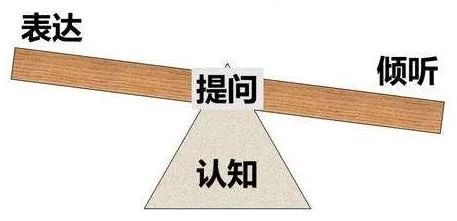Six Key Details in Dental Consultation You Should Know
In dental clinical diagnosis and examination, the consultation process is extremely important. A high-quality consultation requires attention to methods and techniques. What situations are the most challenging during the consultation? What details should be noted?
 1. Grasp the Timing and Progress of the Consultation
1. Grasp the Timing and Progress of the Consultation

The consultation time should be appropriate: generally not exceeding 40 minutes, and for emergency patients, it should not be too brief, lasting no less than 10 minutes.
If possible, it is best to arrange appointments for patients, as this allows for more ample communication time between doctor and patient.
When the patient enters and sits down, the doctor or consultant should offer a glass of water, allowing the patient to rest briefly. This is especially important for parents with children and the elderly. After drinking water, the consultant should conduct a simple inquiry, summarizing it into a brief medical history, and then allow the patient to rest for a minute or two. During this time, the consultant can communicate the simple medical history and the patient’s basic situation with the attending doctor, enabling the doctor to have a clear understanding of the patient’s condition for the upcoming consultation, including the purpose, process, and expected outcomes. After resting, the patient will also have clearer thoughts for the conversation.
Doctors should avoid being overly dominant during the consultation. Questions can be asked in chronological order to trace the evolution of the patient’s symptoms, which helps avoid missing important information. For example, the doctor can ask: “When did the symptoms first appear? What happened next? Then…?” If multiple symptoms appear simultaneously, it is also necessary to determine their order of occurrence.
Additionally, the attending doctor should use transitional language to guide the patient in discussing different issues. For example, “We have been discussing the purpose of your visit today; now I would like to understand your past medical history, starting from the symptoms and tracing to the present, the more detailed, the better”; “When did you first experience this situation, and what were the specific symptoms?” Using such transitional language will prevent confusion for the patient and encourage them to accept your inquiries.
 2. Listening and Asking Questions During Consultation
2. Listening and Asking Questions During Consultation

The purpose of the doctor’s inquiry is to obtain more information from the patient, but it is crucial to avoid hastily asking a series of questions that leave the patient no time to consider their answers. Listening and asking questions are equally important. Doctors should not interrupt the patient easily and should allow sufficient time for the patient to answer questions, as well as permit pauses for the patient to think.
If the patient keeps discussing many unrelated issues, the doctor can politely guide the patient back to the medical history, such as saying, “I understand your concerns; now please talk about your dental situation at that time!”
 Open-ended or Closed-ended Questions?
Open-ended or Closed-ended Questions?
Open-ended questions are beneficial for dentists to gather a large amount of information about a specific aspect of the patient. This type of questioning allows the patient to narrate their condition like telling a story. For example, “What discomfort do you have today?” or “Please tell me about your teeth situation.” Such questions are often used at the beginning of the consultation. After obtaining some information, more focused follow-up questions can be asked. If direct or selective questions are used at the start, it may limit the patient’s ability to communicate, making it difficult to obtain necessary information.
Once the doctor has grasped the patient’s basic information and can use their experience to further assess the patient’s condition, they will often use closed-ended questions. The doctor can purposefully and systematically ask specific questions, such as “How long have you had tooth pain?” or “Is your pain sharp or dull?” This prompts specific information that is more targeted. To systematically and effectively obtain accurate information, the attending doctor should generally follow a process from general to specific in their questioning.
Sometimes, to verify information, the doctor may need to ask the same question multiple times, reiterating key points. However, unplanned repetitive questioning may damage the harmonious doctor-patient relationship and erode the patient’s trust. To prevent omissions and forgetfulness, the doctor should comprehensively and focus on summarizing each statement made by the patient. At the end of the consultation, the doctor can also summarize key points for the patient to hear, checking if the patient has any additions or corrections, which will help reduce repetitive questioning.
 4. Choose Appropriate Language
4. Choose Appropriate Language

Language is a tool. People can use this tool to express their thoughts. We cannot perfectly convey our thoughts to others, but we can at least avoid using vocabulary and tone that lead to ambiguity and misunderstanding.
When doctors communicate with patients during consultations, they should strive to make their language as simple and understandable as possible, allowing patients to comprehend what they are saying, avoiding medical jargon. For instance, when questioning a patient with cavities, one might ask, “Do you wake up suddenly at night with pain?” instead of asking, “Do you have paroxysmal nocturnal pain?” It is also important to avoid using ambiguous medical terms.
Moreover, the tone of the questions is crucial. Sometimes, the tone of a rhetorical question can reinforce affirmation, but people rarely use it in everyday communication. Doctors should especially avoid using such tones in their inquiries. For example, “Don’t you feel your teeth are getting loose?” This type of question can be misleading and may unnecessarily pressure the patient.
Additionally, doctors should avoid suggestive questions during consultations. For instance, when asking a patient with abdominal pain, one should not directly ask, “Does the pain in your back teeth radiate to your front teeth?” Instead, it would be better to ask, “Does the pain in your teeth affect other areas?” This way, the information obtained is more objective and truthful.
Doctors should also be mindful of patient privacy and other issues during consultations, keeping their voices low and language gentle (especially regarding aesthetic and odor-related issues).
 5. Be Honest and Open
5. Be Honest and Open

Some patients may respond with “yes” to questions about unclear medical histories; others may feel fear regarding their condition, potentially hiding the truth or exaggerating their symptoms, not being truthful, or even fabricating their condition. In such cases, doctors should analyze and judge with a scientific attitude, identifying unreliable or vague areas, and repeatedly inquire from different angles to obtain reliable medical histories, avoiding hasty conclusions or casually telling patients what disease they have.
Doctors should also understand whether their technical skills match the needs of the patient. When they cannot provide the necessary services, doctors should acknowledge their lack of experience, reassure the patient, and seek help from more experienced colleagues.
 6. Encourage Patients to Ask Questions
6. Encourage Patients to Ask Questions

During the consultation, it is very important to allow patients to ask questions, as they often have doubts that need further explanation and may think of new questions they had not considered before. Doctors should clearly inform patients that they can ask questions and encourage them to discuss issues. For example, doctors can tell patients that if they have any doubts or can provide more information related to the discussion, they should feel free to speak up, usually at the end of the main discussion.
Doctors should demonstrate their demeanor during the consultation, allowing patients to feel fully cared for and respected.
At the end of the consultation, a closing statement should indicate that the consultation is over, informing the patient of their role and obligations; the patient’s requests and expectations; and clearly outlining the future treatment plan, including what both the doctor and patient need to do, as well as scheduling the next appointment.
The consultation is a special dialogue, and its professionalism and effectiveness can shape the doctor’s logic, expertise, and personal charm. A good consultation can significantly increase the success rate of the visit!


